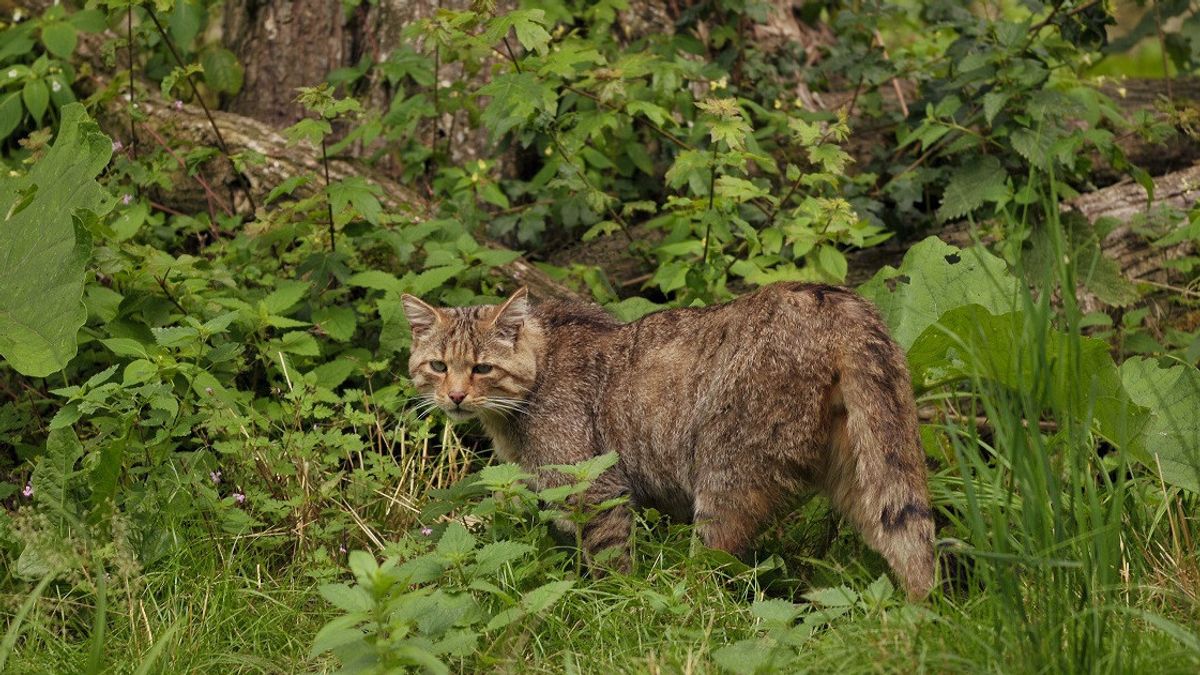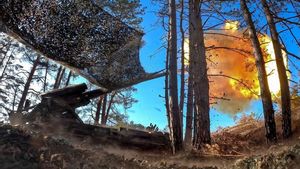JAKARTA - For the first time in 200 years, European feral cats will be reintroduced into British forests as part of conservation efforts to save them from extinction.
The European wildcat is Britain's rarest mammal and is functionally extinct, with fewer than 300 thought to remain exclusively in the Scottish Highlands.
But wildlife charity Wildwood Trust announced it hoped to save the species from total extinction by touting a 'new dawn' program for the country's remaining native cat species.
"Our goal is to return viable and independent feral cat populations to their original habitat. As a leading British wildlife conservation charity, we have developed years of experience and expertise in breeding feral cats to support existing Scottish conservation projects," said the director of conservation. Laura Gardner, as reported by the Daily Mail.

"We are now excited to use these skills to benefit the wider recovery of feral cats across the UK."
The Wildwood Trust, in partnership with the Durrell Wildlife Conservation Trust and the Vincent Wildlife Trust, hopes to build 10 new feral cat breeding facilities at its two locations in Herne Bay, Kent and Escot, Devon.
The European wild cat is known to be one of the most sensitive animals. They are difficult to breed due to any noise or disturbance. Thus, their temporary home is usually invisible.
Later, each cage of the program will house a pair of breeding cats, which usually mate between January and March. European feral cats give birth to one to eight cubs in one gestation period. which is usually between April or May. After that period, they will be released into the wild.
Later, the project, which is planned to last for the next 10-20 years, will make many wild European kittens, easily found in various British wilderness.

While experts from the University of Exeter are researching suitable sites for reintroduction, the Trust says it needs £50,000 to complete the project, while launching an application to raise substantial funds from public donations.
"This will be a long-term commitment for Wildwood that requires increased resources and infrastructure so we are counting on public support to help."
To note, feral cats were hunted and persecuted to extinction in England and Wales more than a century ago, when all predators were considered pests. This species is difficult to find again, due to the loss and destruction of their habitat, as well as recent interbreeding with domestic and wild cats.
Scotland's last group of feral cats is no longer considered a viable population. But it is hoped that restoring healthy numbers of one of the few native predators could restore the balance of the ecosystem.
This is because they perform important functions such as controlling prey such as rabbits and rodents, while providing competition to other hunters for food.
The English, Chinese, Japanese, Arabic, and French versions are automatically generated by the AI. So there may still be inaccuracies in translating, please always see Indonesian as our main language. (system supported by DigitalSiber.id)













